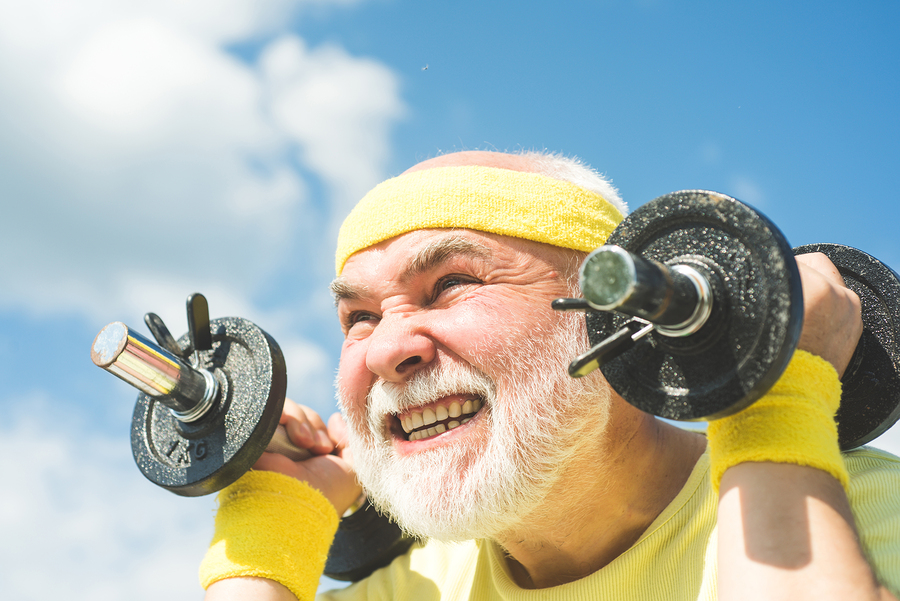Is over-exercising bad for us?
In a nutshell – yes!
Over-exercising or overtraining is when we exceed our body’s ability to recover from strenuous activity.
If your aim is to improve performance, strength or speed the best way is to follow a regular training programme and then gradually overload your body by increasing the distance or speed you are running, by increasing the number of reps you do or by lifting heavier weights. But be careful, as overtraining can result if you fail to plan in adequate recovery time thereby allowing your body to rest and repair.
Examples of overtraining are:
- undertaking rigorous gym sessions 2 days in a row
- a novice runner deciding to complete two half marathons in two days
Without rest, these examples of overtraining could lead to injuries and if this is repeated over time could even limit progress and result in losing current fitness levels.
How do we know if we are overtraining?
If our resting heart rate increases by 10-15 beats per minute when it should be going down then it may be a sign of overtraining. (A decrease in resting heart rate is an indication of improved cardiovascular fitness). Fitness trackers are a useful tool in monitoring our resting heart rate throughout the day.
Sleeping problems may occur. This is due to our hormones and central nervous system being out of balance.
Muscles feel sore for more than three days. It is natural for muscles to feel sore after a workout but if it lasts for more than three days then our body may be showing signs that it is unable to recover as it normally should. A further sign of overtraining is if we feel aches in muscles we haven’t even trained.
A decline in performance – It is natural to have off days but consistent poor performance may be a sign of overtraining.
Catching illnesses – if our bodies are being strained by overtraining then we are more prone to catching illnesses such as the flu.
Low mood – our nervous system is affected when we put too much stress on our bodies.
How to minimise overtraining
First and foremost rest! Taking some time off training with reduce and eliminate the symptoms of overtraining.
Look at your sleeping habits. Persistent lack of sleep has been linked to poor training quality, increased chance of injury and health risks such as diabetes and high blood pressure. So, if you feel like you’re not getting enough good quality sleep at night then try and address it. You can find tips on how to sleep better here.
Try to have at least one or two days a week when you can switch off and do other activities you enjoy. Some great ways to get some movement into your day without doing too much is to walk, cycle, swim or even dance – these are all great stress busters too!
Good hydration and nutrition can reduce the symptoms of overtraining. Eating a well-balanced diet can help to repair muscles and replace glycogen stores and keeping hydrated throughout the day will help with fatigue and performance too. During intense training periods we should be eating foods such as wholegrains, brown rice and pasta and proteins such as chicken and fish.
How to prevent overtraining
Planning is key as it’s easy to lose track of how intense your sessions are if you don’t get organised. So schedule in rest days or very low intensity days which will help your body to recover. It is also a good idea to log how intensely you train or how fast your run was on a particular day, that way if you’ll have an explanation if you’re tired or sore the following day.
You should always be prepared to adapt. If you are having a stressful week and you undertake an intense training session then you may end up feeling physically and mentally exhausted. So shortening your training session or lifting lighter weights or fewer reps for a couple of days will help get you back on track.
In summary, sleeping well, scheduling in at least one or two low intensity sessions per week, eating a balanced diet and listening to your body should help you exercise safely and achieve lasting benefits. Above all learn to be kind to yourself!
Read more on which foods to eat during exercise.
Disclaimer
All content on Silversurfers.com is provided for general information only, and should not be treated at all as a substitute for the medical advice of your own doctor or any other health care professional. Silversurfers will not be responsible or liable for any diagnosis made by a user based on the content on www.silversurfers.com and we are also not liable for the content of any external websites or links from or to Silversurfers to any other websites. Please always consult your own doctor if you’re in any way concerned about any aspect of your health.
Melina - Assistant Editor
Latest posts by Melina - Assistant Editor (see all)
- Banana bread with SunGold kiwis - February 20, 2025
- A tribute to Bob Marley - February 4, 2025
- Going to Work on an Egg! - January 29, 2025
- The Very Best of Petula Clark - January 14, 2025
- 50 Years of Coat Trends - January 12, 2025




















